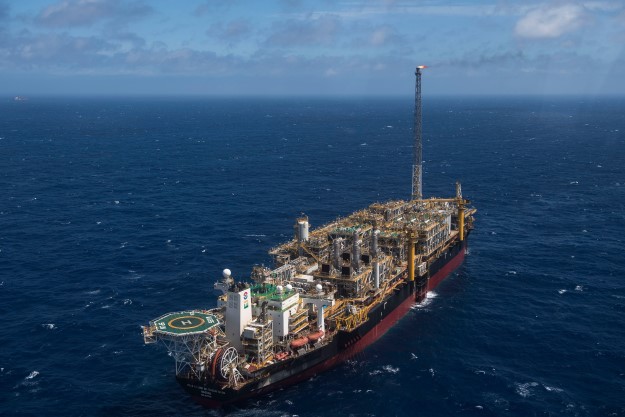It’s been a lucrative and eventful month at Brazil’s state-led oil firm Petrobras.
The company raised nearly $20 billion from two big transactions on April 5 and 9, only to see market value fluctuate wildly over concerns about its fuel pricing policy. Investors grew jittery after the government overruled Petrobras’ decision to phase out diesel subsidies, contradicting the ostensibly pro-market tendencies of the Bolsonaro administration.
But despite the messy politics of the pricing controversy, observers trying to get a sense of Petrobras’ long-term direction would do well to keep their eyes on that $20 billion.
On April 5, Petrobras agreed to sell 90% of its Transportadora Associada de Gás (TAG) business to a consortium led by French utility Engie. TAG is a wholly-owned subsidiary of Petrobras that operates a sprawling 2,800-mile (4,500 km) network of natural gas pipelines, mainly across north and northeast Brazil. If approved by industry regulators, the sale will generate $8.6 billion for Petrobras, representing its largest single-asset sale ever.
The proceeds will go towards paying down corporate debt, which until recently was the highest of any company in the oil and gas industry. Petrobras has prioritized debt repayment in recent years, and has made substantial progress in cutting its burden. At year-end 2018 net debt had decreased 18% from 2017 to $69.4 billion, and was down 30% from 2015 – a financial nadir for Petrobras amid the Lava Jato scandal – when its debt stood at $100 billion.
Reducing debt has, in turn, boosted the company’s bottom line. In 2018 Petrobras posted its first profit in five years, aided in part by lower interest obligations, although higher oil prices and a depreciation of the Brazilian real against the dollar also played a large role.
Asset divestments, like the one announced on April 5, have been central to Petrobras trimming its debt. The company’s future is inextricably tied to Brazil’s pre-salt, the massive deposits of deepwater oil locked beneath layers of salt on the ocean floor. Any assets that are not directly related to pre-salt oil and gas exploration and production are, in theory, up for sale. Onshore and shallow-water oil blocks, refineries, transmission assets, and now gas infrastructure have all been offered to the market.
Petrobras’ core focus on the pre-salt makes the second major deal, announced days later, particularly relevant. On April 9, Brazil’s National Energy Policy Council revealed that the government had reached a long-awaited settlement with Petrobras that will pay the company $9.06 billion over the so-called Transfer of Rights area of pre-salt deposits.
The issue traces back to 2010, shortly after Brazil’s pre-salt riches were discovered, when Petrobras was undergoing a corporate restructuring and recapitalization process. In exchange for company equity, the government granted Petrobras exclusive rights to develop up to five billion barrels of oil from designated pre-salt areas. At the time, the swap was valued at $42 billion when oil prices were around $90. The terms of the agreement allowed for the contract to be reviewed after the Transfer of Rights areas were declared commercially viable, a determination that was made in 2014. Oil prices crashed shortly thereafter and Petrobras argued for years that it was owed a substantial refund from the government.
The agreement ends a protracted negotiation between the two sides and relieves the industry of lingering uncertainty over a payment owed to the state company and the largest investor in Brazil’s oil sector. Financial analysts largely praised the deal.
Importantly, a final agreement now paves the way for a massive industry auction later this year. The entire Transfer of Rights area was subsequently appraised to hold as much as 17 billion barrels of recoverable reserves. The excess volumes beyond what has been contracted to Petrobras will be put to public bid in an auction slated for Oct. 28.
Unlike the TAG proceeds, which will go towards servicing debt, Petrobras is expected to use the cash injection from the settlement to fund its acquisition of more pre-salt resources in the October auction. Pre-salt oil and gas output already accounts for nearly three-quarters of Petrobras’ total production. The geology of the pre-salt zone is so well-mapped, and their operating costs so competitive, that it is in Petrobras’ best interest to home in on their development. The company’s average production costs for pre-salt are below $7 per barrel. By rough comparison, production costs of U.S. shale projects – among the most attractive oil plays in the world – average at or above $30 per barrel.
Petrobras can be expected to actively bid in the Oct. 28 auction, but there is plenty of pre-salt oil and gas to go around for the rest of the industry. The sheer size and productivity of Brazil’s pre-salt resources already make them one of the most desired assets in the oil and gas industry. Since Brazil’s pre-salt blocks were opened to public bidding in 2013, tens of billions of dollars of investment have poured in from major industry players.
Brazil’s energy policy centers on loosening the state oil company of its monopoly, albeit gradually, allowing it to focus on core competencies, while inviting other international players to compete. Beyond the physical qualities of resources, Petrobras’ two big developments this month both feed into an attractive, stable environment for global investors in Brazil’s energy sector.
By selling a non-strategic interest, the state firm has fully privatized a large segment of its energy chain for the sake of financial stability. And in the government resolving a long-standing dispute with Petrobras, it has cleared the deck to invite the biggest names in industry to again invest in the country’s prolific pre-salt plays.
—
Mendoza is director of the energy program at AS/COA






